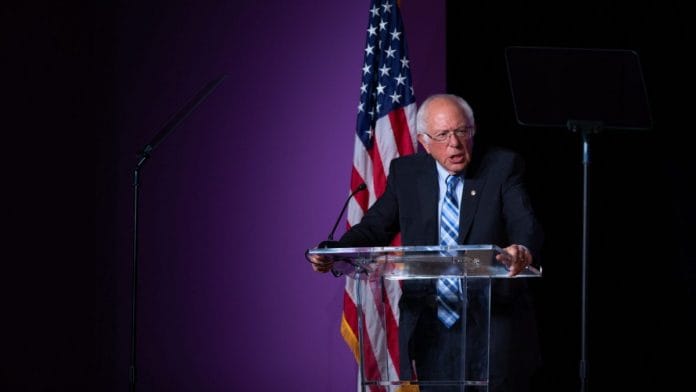Burlington: Bernie Sanders ended his presidential run on Wednesday after a string of stinging defeats left him without a credible path to the Democratic nomination, anointing Joe Biden as the party’s de facto standard bearer.
Sanders’s move came after an unbroken string of losses in recent weeks that cemented Biden’s all-but insurmountable lead in delegates. Sanders, the one-time front-runner, lost voters across regions and demographic groups, failing to gather the diverse coalition necessary to lead the party.
The race had been overshadowed by the quickly spreading coronavirus crisis, which left the two candidates with only one issue to discuss, and a public not focused on the 2020 race.
Sanders’s campaign was built around some of the most progressive proposals in U.S. political history, including his centerpiece Medicare for All plan to abolish all private insurance and create a government-run health care system. His agenda, which was largely also supported by Elizabeth Warren, pushed the Democratic Party to the left. Biden has already adopted versions of some of Sanders’s ideas such as free public college tuition in a bid to appeal to the Vermont senator’s supporters.
Biden earned an insurmountable delegate lead over Sanders and more than half the nearly 2,000 delegates needed to secure the nomination, making it virtually impossible for Sanders have caught up in the nominating races ahead.
Sanders’s decision to step aside is a marked change from 2016, when he took the primary battle against Hillary Clinton until June, just as Clinton did with Barack Obama in 2008.
A Democratic primary contest that in mid-February had Sanders as the clear front-runner slipped away from the Vermont senator in surprisingly quick fashion.
Sanders scored a strong performance in the first contest in Iowa, and followed up with wins in New Hampshire and Nevada. But an overwhelming defeat to Biden in South Carolina on Feb. 29 was followed by a dismal showing on Super Tuesday, March 3, when he won just four of the 14 states holding contests.
Those losses were compounded by others on March 10, including in Michigan, which Sanders had envisioned as a firewall.
Sanders failed to attract African-Americans, who form an essential constituency for any candidate seeking the Democratic nomination, to his campaign. In the Mississippi primary on March 10, Biden won 86% of the black vote, while in South Carolina, the former vice president won almost two-thirds of black voters.
For most of the race, Sanders remained in third place in polls, behind Biden and Warren. And his campaign was stalled in October, when he suffered a heart attack. The incident, which the campaign first called chest pains, was the first time a candidate experienced a potentially life-threatening health incident while campaigning for a major party’s presidential nomination.
At 78, Sanders was the oldest candidate in the race and the health scare led to doubts about his fitness to serve, even though he said he had fully recovered and resumed a full slate of campaign activities. – Bloomberg
Also read: Joe Biden is (almost certainly) the Democratic nominee for US presidential race






